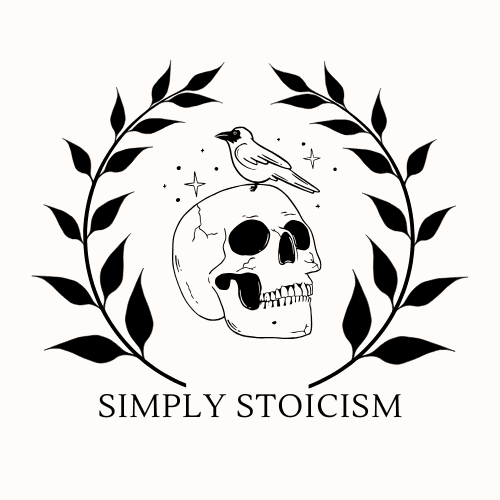Building Resilience: Lessons from Marcus Aurelius
Discover Marcus Aurelius's battle-tested system for building unshakeable resilience in chaos. Ancient wisdom meets modern life in this practical guide to staying strong under pressure.

Jon High
·
Dec 28, 2024
Last week, I got the kind of email that makes you want to pull your hair out and scream at the next person you see. Our team's major initiative was being deprioritized — after weeks of hard work, energy, and time. As I sat there staring at my screen, Marcus Aurelius's words hit differently:
"Choose not to be harmed — and you won't feel harmed. Don't feel harmed — and you haven't been."
Here's the thing: Marcus wasn't writing feel-good quotes from an ivory tower. He was leading Rome through a devastating plague, multiple wars, and even his top general's attempt to steal his throne. Yet he remained effective, clear-headed, and remarkably resilient.
But how?
After a decade studying Marcus's personal writings (and testing his methods in the trenches of modern work), I've distilled his most powerful practices for building unshakeable resilience. No philosophical jargon. No fortune-cookie wisdom. Just battle-tested tools that actually work.
The Morning Practice That Changes Everything
Marcus started each day with a brutally honest ritual. Before checking email or opening Slack, he'd remind himself:
"Today I will meet people who are meddlesome, ungrateful, aggressive, treacherous, malicious, and unsocial."
Sounds pessimistic? Actually, it's brilliant psychological preparation.
When that team member quit last week, I wasn't blindsided. I'd already prepared my mind for potential setbacks. The shock was minimal. I could move straight to solution mode.
Here's how to build your own morning resilience ritual:
Take 3 minutes before opening any devices
Name 3 potential challenges you might face today
Visualize yourself handling them calmly
Focus on what you can control
This isn't about expecting disaster. It's about removing the shock when things go wrong.
The Perspective Shift That Changes Everything
"Look back over the past, with its changing empires that rose and fell, and you can foresee the future too," Marcus wrote. This wasn't philosophical escape — it was a practical tool for maintaining perspective when everything felt overwhelming.
During last week's crisis, I used Marcus's "zoom out" technique:
Will this matter in 5 years?
What's the actual worst that could happen?
What previous "disasters" have I survived?
Suddenly, one team member leaving didn't feel apocalyptic. It was just a problem to solve.
The Daily Strengthening Practice
Marcus didn't just philosophize about resilience — he built it through daily habits. Here's the modern version:
Morning Power Questions
What's actually in my control today?
Where can I be useful?
What principles will I not compromise?
Evening Review (2 minutes max)
What challenged me today?
How did I respond?
What's one thing I'll do better tomorrow?
Building Your Inner Citadel
When Avidius Cassius (Marcus's trusted general) tried to seize power, Marcus didn't panic. He had spent years building what the Stoics call an "Inner Citadel" — an unshakeable core that no external event could breach.
Here's how to build yours:
Define Your Core Principles:
Don't wait for crisis to decide what you stand for. Write down your non-negotiables now.
Practice Voluntary Discomfort:
Take cold showers
Do the hard task first
Fast for 24 hours monthly Small voluntary hardships build resilience for involuntary ones.
Strengthen Your Support System:
Marcus had his council. You need your own circle of trusted advisors. Build these relationships before you need them.
Digital Resilience: The Modern Challenge
Marcus dealt with information overload in his own way — countless reports, requests, and demands flooded in daily from across the empire. His solution? Ruthless prioritization and regular disconnection from the chaos.
Modern application:
Information Boundaries
Block 2-hour chunks for deep work
Check email at set times only
Create "offline hours" and stick to them
Digital Detox Protocol
One device-free day per month
No screens 1 hour before sleep
Morning ritual before first device check
Communication Triage
Define true urgency beforehand
Set response time expectations
Batch similar communications
Handling Uncertainty
"Accept the things to which fate binds you, and love the people with whom fate brings you together, but do so with all your heart."
Marcus faced constant uncertainty: wars, plagues, betrayals. His approach?
Accept Reality Fully
No wishful thinking
No "what-ifs"
Clear assessment of what is
Focus on Immediate Action
What's the next useful step?
What can you do right now?
Where can you add value?
Maintain Core Functions
Keep essential routines
Preserve key relationships
Stick to fundamental principles
The Ultimate Test
True resilience isn't about avoiding problems — it's about who you become by facing them. Every crisis is an opportunity to practice what Marcus preached:
"The impediment to action advances action. What stands in the way becomes the way."
When that team member quit, it forced us to rebuild our processes, making them stronger and more resilient. The obstacle became the way forward.
Start Now
Begin building your resilience today:
Do the morning practice tomorrow
Choose one voluntary discomfort this week
Identify one digital boundary to set
Write down your core principles
Build your support circle before crisis hits
Remember: Marcus built his resilience while leading an empire through multiple catastrophes. You can build yours one small practice at time.
The next crisis in your life isn't a matter of if, but when. Start building your inner citadel now. The time to strengthen your walls is before the siege begins.
Your resilience journey starts with the next small action you take. What will it be?



